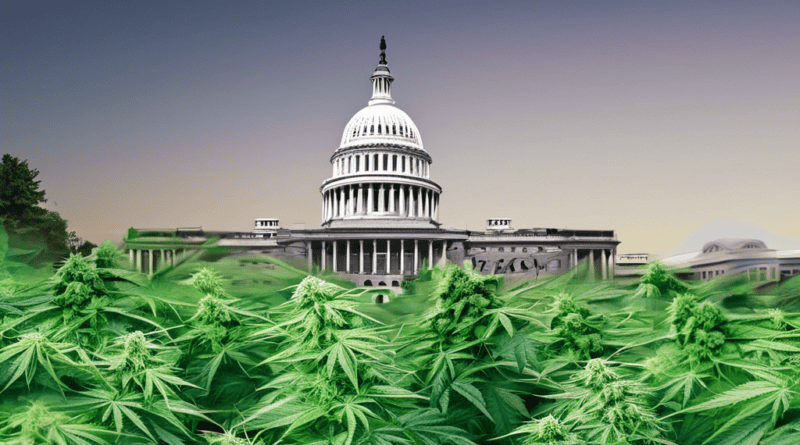Navigating Legislative Hurdles: Cannabis Industry Challenges and Developments in New Hampshire and Beyond
In recent cannabis business news, New Hampshire faced significant developments with the legislative process surrounding House Bill 1581 (HB 1581), which has implications for the medical cannabis industry in the state. This bill, proposing key changes in cultivation practices, recently faced a setback with the failure to override a gubernatorial veto. Alongside this, there have been various notable actions and reactions in neighboring states that illustrate the dynamic regulatory landscape for cannabis in the United States.
New Hampshire’s Legislative Challenges
The primary focus in New Hampshire was on the legislature’s attempt to override Governor Chris Sununu’s veto of HB 1581. This bill was designed to allow licensed medical cannabis cultivators to utilize greenhouses, a move aimed at enhancing cultivation efficiency. The proposal included provisions for alternative treatment centers (ATCs) to expand their cultivation facilities to include greenhouse operations, pending approval by the Department of Health and Human Services.
An important aspect of this legislation was its potential reduction in energy use. Greenhouse cultivation is known to consume less energy compared to the traditional indoor grow facilities, promising a more environmentally sustainable approach. Moreover, this bill mandated strict security requirements for any new greenhouses, which would align with the rigor already applied to indoor growing locations. Despite these insights into energy efficiency and security, the bill’s passage was halted by Gov. Sununu’s concerns regarding its lack of detailed safety, security, and location specifications.
Other Cannabis Developments and Effects
The legislative process saw the New Hampshire House of Representatives voting overwhelmingly (270-55) in favor of overriding the veto. However, the final decision rested with the Senate, where the override failed with a 14-9 vote against. The failure to pass this bill could have repercussions for medical cannabis patients in the state. With ATCs continuing to shoulder high energy costs, there is a risk of increased prices for medical cannabis products, which may affect the accessibility for many patients reliant on these treatments.
Amidst this setback, Gov. Sununu has shown support for expanding medical cannabis in other areas. Recent legislative efforts have included the passage of bills allowing physicians to recommend cannabis for broader debilitating conditions and adding generalized anxiety disorder as a qualifying condition for medical cannabis use. These measures reflect a growing recognition of the therapeutic potential of cannabis while underlining the importance of adhering to effective regulatory frameworks.
Beyond New Hampshire, regulatory actions in Massachusetts also highlight the ongoing efforts to ensure compliance within the cannabis industry. The state’s Cannabis Control Commission issued fines to Curaleaf and Ascend Wellness for breaches in pesticide use and record-keeping, underscoring the vigilant oversight required in this sector. Furthermore, potential challenges in Nebraska, where the validity of petition signatures for medical cannabis legislation is under scrutiny, point to the complexities involved in advancing cannabis legalization efforts.
Collectively, these developments emphasize the intricate dance between regulation, cultivation practices, and accessibility within the cannabis business, as states continue to navigate the evolving landscape of cannabis legality and usage.

